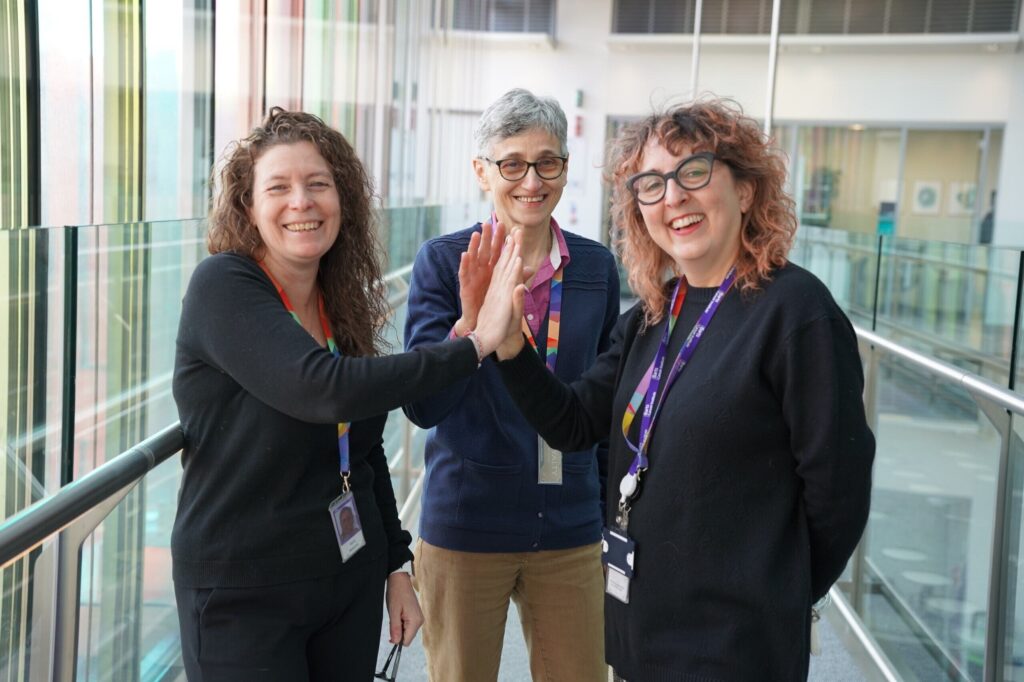€9.8m ERC Synergy grant awarded to study how human tissues stay healthy as we age
Researchers at the Barts Cancer Institute (Queen Mary University of London) and Francis Crick Institute have been awarded €9.8 million from the European Research Council (ERC) to investigate how tissue homeostasis, the body’s ‘status quo’, is maintained over time, and how genetic mutations can help or hinder this process.
Their pioneering 6-year project called MUTAHOME is one of just 56 to be awarded ERC funding in a competitive group of 548 applications from across Europe.
One of the most surprising biology discoveries of recent years is that genetic changes accumulate in adult tissues as we age. For most people, these mutations lie seemingly silent for years and only in a minority of cases they cause cancer. Scientists now hypothesise that these mutations may even improve the body’s ability to maintain tissue homeostasis.
Research leads Professor Francesca Ciccarelli, Dr Ilaria Malanchi and Dr Dominique Bonnet are combining their complementary expertise in different areas of cancer research, to explore the fine balance between advantage for the tissue and cancer initiation, and what can cause this balance to tip.
Together they plan to create a detailed picture of how mutations affect the entire body. Ilaria specialises in how stem cells within solid tissues interact with their local environment; Francesca studies the evolutionary impact of genetic mutations in human tissues; and Dominique leads work on how the bone marrow microenvironment, including blood stem cells, changes as we age and in response to external insults like infection.
They will systematically study how stem cells change over time, accumulate mutations and interact with other cells locally. They will then use machine learning tools to identify if and when these mutations could be beneficial, and if there are biological signals linked to their advantage.

"Winning this ERC grant is proof that new research is sparked from curiosity and that these complex questions can only be addressed by combining diverse expertise."
—Professor Francesca Cicarelli
Francesca Ciccarelli, Lead of the Centre for Cancer Genomics and Computational Biology at Barts Cancer Institute, Queen Mary University of London and Head of the Cancer Systems Biology Laboratory at the Crick said: “The idea for this project began with conversations between Ilaria and myself about why mutations accumulate in healthy stem cells over time. We asked Dominique to join the team after hearing her present evidence of the beneficiary roles of some mutations in blood stem cells. Winning this ERC grant is proof that new research is sparked from curiosity, and that these complex questions can only be addressed by combining diverse expertise.”
Dominique Bonnet, Head of the Haematopoietic Stem Cell Laboratory at the Crick, said: “An accumulation of mutations is nearly always seen as bad, but it could be conferring an advantage if it doesn’t lead to cancer. We’re hoping that this ambitious project will help us understand what environmental triggers are needed for mutations to become bad and cause disease.”
Ilaria Malanchi, Head of the Tumour-Host Interaction Laboratory at the Crick, said: “We’re very proud to be awarded this competitive funding which will give us the opportunity to work together on this important research question. We hope our work will improve the understanding of how the body maintains or loses its healthy equilibrium over time.”
Category: General News, Grants & Awards

No comments yet